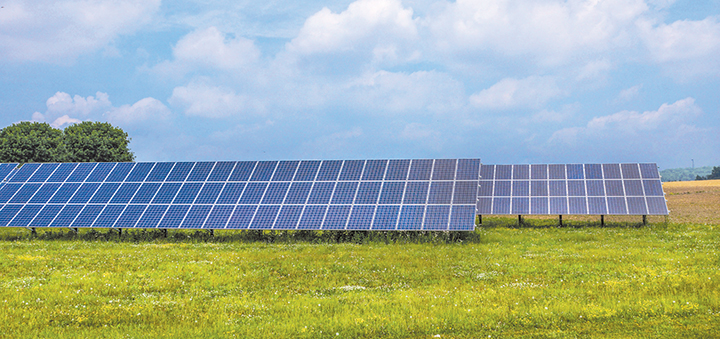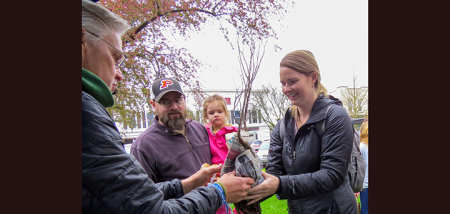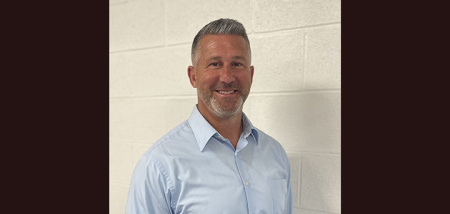County Ag Committee Talks Farmland Protection Against Growing Number Of Solar Projects
Published:
August 17th, 2022
By:
Shawn Magrath
 Solar energy fell under scrutiny of the Chenango County Ag, Buildings and Grounds Committee on Tuesday, when county officials explored the impact that solar projects may have on the future of viable farmland. (File photo)
Solar energy fell under scrutiny of the Chenango County Ag, Buildings and Grounds Committee on Tuesday, when county officials explored the impact that solar projects may have on the future of viable farmland. (File photo)
CHENANGO COUNTY – Members of Chenango County’s Agriculture Committee on Tuesday voiced concerns over the direction of solar energy, some members warning that solar projects may be pilfering viable farmland locally and statewide.
The committee’s discussion was spurred by New York’s recent approval of the state’s largest solar project in Genesee County. The 500-megawatt solar energy project – enough to power 125,000 homes – will be built on roughly 3,000 acres in the towns of Oakfield and Elba in Genesee County, about 33 miles west of the City of Rochester.
The project was greenlit by the New York State Office of Renewable Energy Siting in late July.
But opponents argue the Genesee County project will forfeit prime farmland. Town of Otselic Supervisor Marjorie Davis sits on Chenango County’s agriculture and farmland protection board, as well as the county agriculture, buildings and grounds committee. She argues that the state’s pursuit of clean energy may come at the cost of lost food production.
“I’m sure Rochester wants electricity, but I also think Rochester probably likes to eat,” she said. “We’re not going to change the climate and we’re not going to change a lot of the things here; but as a committee that thinks about agriculture in Chenango County, we should be aware of some of the things that are happening.”
Farmland advocates say the solar project in Genesee County risks more than 2,100 acres of farmland over the course of its 30-year lifespan. About 68 percent of the project site is row crop fields, and 41 percent is viable farmland, according to the company’s review.
Locally, the Chenango County IDA has reviewed nearly half a dozen solar projects in the last year alone, the most recent being a proposed project in the Town of Smyrna. Other projects have already been built, including one in Norwich and another on 55-acres of an old industrial park in Bainbridge. All of those are small in comparison.
Nevertheless, county officials say that while the integration of solar farms certainly changes the face of local farming, there’s not much to be done at the local government level.
“What I’ve heard so far is that solar companies are reaching out to landowners to see if they’re interested,” said Ag, Buildings and Grounds Committee member Jeremiah Micklas (Pharsalia). “What I’ve heard so far is that landowners are interested because they want to keep land in their family and they’re not making any revenue from the farming business anymore.”
“When a developer wants to put a solar farm in, regardless of the size of the solar farm, the ability to put that in obviously rests with the landowner,” said Afton Supervisor John Lawrence. “He has the right to say yes or no … If he says ‘No, I don’t want that land used for a solar farm,’ then who can override that?”
The challenge in preserving farmland may come down to a simple issue of revenue for landowners. The profits of renting land to farmers, officials said, just can’t compete with what energy companies are offering.
“We were approached at our town, and it didn’t go through, but we were offered $1,200 an acre,” said Guilford Supervisor George Seneck. “Farmers can’t afford to pay $1,200 an acre to put in corn or hay.”
“I think it’s imperative that individual towns pass their own regulations. It gives municipalities some control over what may or may not happen,” Seneck added. However, he also cited state regulations which prevent municipalities from zoning or completely banning an energy project. And local regulations that restrict energy projects from being carried out are often overridden by the state, he said. “When you’re trying to pass a local law, you’re trying to make it as strict as possible to protect the community. But if you go above and beyond that, you can’t do it. There’s state law that says you cannot ban an energy project.”
Author: Shawn Magrath - More From This Author
Comments







